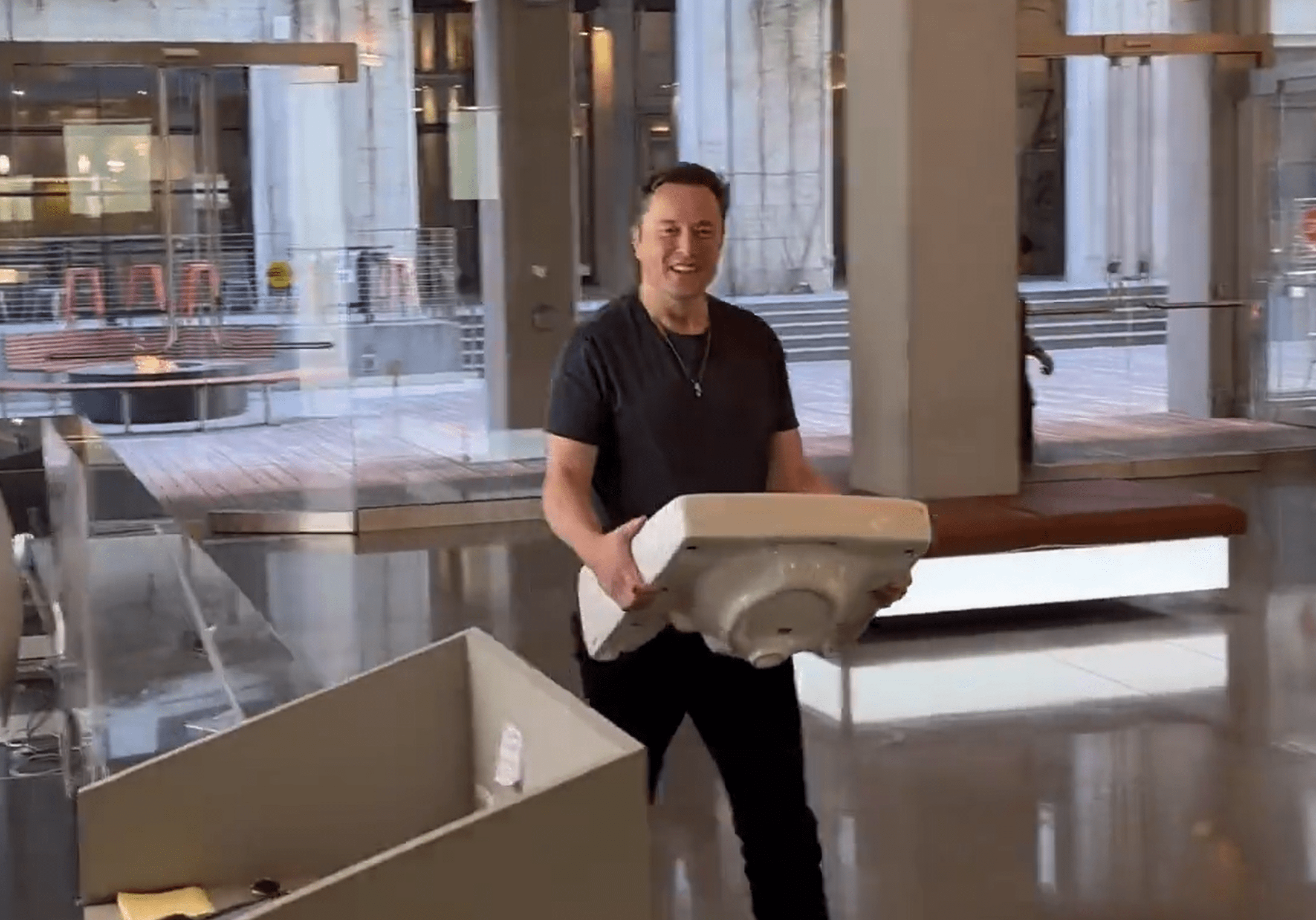Billionaires and the overpowering musk of feudalism
Elon Musk's running of Twitter as though it were his personal fiefdom and his cavalier attitude towards its staff are glaring sign of the world's drift towards a 21st-century form of feudalism.
Ever since his takeover of Twitter, Elon Musk has been running the social media company like a medieval nobleman lording it over his own personal fiefdom, as revealed in this exposé of his bizarre, cruel and erratic behaviour. The tech billionaire clearly believes he knows everything better than everyone at Twitter and treats the employees as though they were modern-day peasants and serfs, who must submit to “extremely hardcore” overwork or be fired.
Musk's impulsive fancy is reminiscent of the mad eccentricities of the Roman emperor Caligula. Whereas Caligula ordered his troops to construct a floating bridge that he could gallop along with his beloved horse, the tech billionaire, who has already launched a test crash dummy into orbit, entered his newly conquered realm carrying a kitchen sink.
And just as Caligula had attempted to fund his extravagant spending through such desperate measures as levying taxes on lawsuits and weddings, not to mention auctioning the lives of gladiators, Musk has tried to make up for the losses incurred due to his impulse purchase of the blue bird by putting up Twitter's blue tick verifications on sale for $8 a month, with predictably disastrous results, and by culling the workforce. Musk also reinstated the account of a former US president who was banned for “inciting violence”, after conducting a poll among the platform's users on whether he should do so.
The incompetent arrogance or arrogant incompetence displayed by Elon Musk since taking the helm of Twitter undermines, yet again, the superhero origin myth surrounding billionaires, that they are somehow a cut above mere mortals, that they are brilliant people with brilliant minds and even more brilliant ideas. Musk's Twitter antics have proved that, much like the feudal lords of the past, today's billionaires are largely little more than ordinary people with ordinary shortcomings who have been given extraordinary powers.
While Musk is not unique in this regard, the fact that he is the second richest person in the world means that his ineptitude and conceit touch the lives of not only every (ex-)employee of Twitter but also the hundreds of millions who use or have used the platform, while his obsession with commercialising space and colonising Mars diverts desperately needed resources away from more pressing and important issues, such as ending poverty or tackling the climate and ecological emergencies.
And the influence, whether malign or occasionally benign, of billionaires (and, more broadly, the one percent) on our daily lives, on the political process, on our collective destinies and even on the fate of our planet has exploded to terrifying proportions. This is because the wealth our 21st-century overlords possess makes that of the suzerains of the past, in absolute terms, pale in comparison, though they must submit, at least in theory, to greater democratic checks and balances. Nevertheless the power they exercise is no longer hemmed in by a manor or even a state – their fiefdoms are their borderless global corporations and unregulated or under-regulated areas of the globe.
This has led some academics to dub this phenomenon neo-feudalism or new feudalism. This is due to how the inequalities of the emerging social order are growing to resemble those of medieval systems of governance – albeit with higher literacy and education, superior healthcare and greater mass political participation – and how the power of corporations is challenging those of states.
Moreover, the super-rich, as a group, appear impervious to the waves of crippling crises (though billionaires took a relative hit in 2022 compared with recent years), from the COVID-19 pandemic and the climate emergency to the fallout of economic downturns and conflict, that have hit ordinary people across the planet. This reality was confirmed, yet again, by the fact that the 1% gobbled up some two-thirds of the $42 trillion in wealth created around the world over the past couple of years, according to Oxfam's recent report titled Survival of the Richest.
The situation is even starker when it comes to the billionaire class. For every dollar of new global wealth earned by a person in the bottom 90%, a billionaire pocketed approximately $1.7 million, Oxfam estimates. And this trend has been gaining pace for some time. For instance, in Britain, billionaire wealth mushroomed by a jaw-dropping 1,000% in the three decades between 1990 and 2022, according to an estimate by the UK's Equality Trust.
This must count as one of the fastest and most spectacular wealth grabs in history. The dramatic nature of this upward redistribution becomes apparent when you consider that, in the space of a few short decades, we went from one of the more egalitarian periods of recorded human civilisation to one of its most unequal.
Despite getting off to a highly unequal first decade and finishing with an increasingly unequal last decade, the 20th century was, in many parts of the world, one of the most egalitarian periods we know of, with some countries experiencing a narrowing of inequalities on a scale never seen, or at least measured, before. Part of the reason for this growing equality was the devastation wrought by two world wars and the desire to build a better world these global conflicts invoked.
Other factors include political empowerment, the rise in mass democratic political participation, egalitarian political ideologies entering the mainstream, including social democracy and socialism, as well as communism and the reaction to it by affluent societies. In many developing states, economic equality initially improved in the early years of independence, in part inspired by a quest for post-colonial justice and development, but the situation worsened significantly in many countries as new elites emerged or old ones returned and consolidated their privileged status.
So what caused the fortunes of everyone but the most fortunate to take such a relative battering in recent decades and how did the wealth gap become a chasm?
One major factor was the neo-liberal economic model that has conquered much of the world. This eroded social safety nets, reversed or reduced the rate of progressive taxation, deregulated markets and weakened labour protections. In this deregulated Wild West phase of globalisation, unscrupulous corporations are able to locate their production facilities where labour is cheapest and workers most abused and underpaid, while selling their wares in markets where profits are highest and headquartering themselves where taxes are lowest or non-existent.
But there are other causes too. One is the quasi-feudal rentier economies that have emerged, which extract their income from the rent they impose on the assets they control, which often exhibit pseudo-monopolistic tendencies.
A prime example of this new feudalism are the petrostates, which are not reliant on the vast majority of their populations for their revenues, and fossil fuel companies, which can extract enormous value with relatively little need for labour. This helps explain why some studies have found, in spite of the paucity of accurate data, the Middle East to be the most unequal region in the world, especially when it comes to the oil-rich Gulf states.
Despite its sleek, empowering and futuristic image, big tech has also developed its own version of the rentier model: many apps and platforms – Amazon, Apple and Uber, for example – produce no real products themselves but extract hefty rents from suppliers.
Automation is another major factor in wealth inequality, as computers, robots and AIs make up what functions as the new slave or serf underclass – which works relentlessly, accurately and obediently without needing sleep, paid holidays, health insurance or organised unions – upon whose back so many billionaires have built their empires.
Tackling this gross inequality and bringing us back to, or surpassing, the heyday of the mid-to-late 20th century requires tackling all these myriad issues. We need progressive taxation, global regulation to tackle the tax avoidance of multinationals and the super-rich. We also need to rethink how wealth is distributed at source by, for example, giving workers a fair slice of profits in highly profitable sectors and by distributing the huge gains from rising productivity to workers not just share holders and top executives. We also need to ensure that automation serves to liberalise and enrich everyone by distributing the gains more fairly and evenly, through higher salaries, shorter working weeks and universal basic incomes.
Despite what some claim, there is nothing natural, inevitable, let alone desirable, in the massive inequalities the world currently suffers. Throughout most of human pre-history, egalitarianism was actually the normal order. Even highly complex societies can be egalitarian, as reflected by the heyday of the Scandinavian model or even the United States in the 17th and early 18th century. And this quest for egalitarianism has never gone away and will never go away, even at the most unequal of times. Moreover, egalitarianism is not just a question of high principles, it is also the pragmatic choice. Given the instability and conflict that is triggered in times of extreme inequality, it is in everyone's interest to build a fairer and more equal world.
Just as we reject and resist the tyranny of political autocrats, we do not have to, and must not agree to, live in the modern-day corporate-dominated fiefdoms and feudalism of the likes of Musk. Feudalism belongs in the dustbin of history, and we should work to dump its latest iteration there as soon as possible.
_________
This is an extended version of an article which was first published by Al Jazeera on 14 February 2023.



